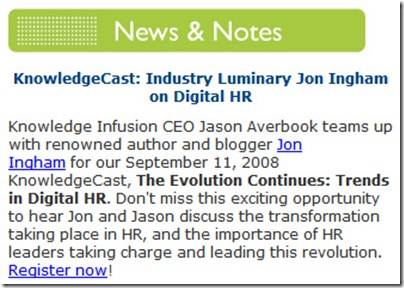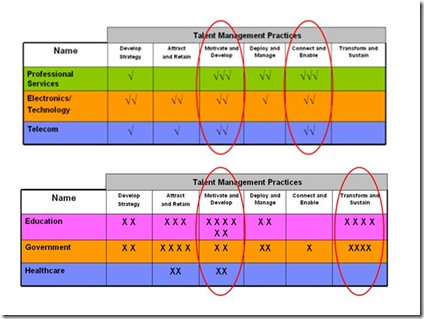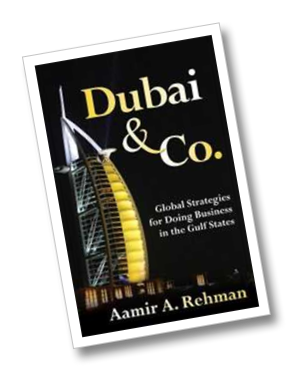 I'm really pleased to announce that on Thursday 11th September 11 at 1:00 pm Central Daylight Time, 7.00pm British Summer Time (Summer???!!!), I'll be presenting on 'Digital HR' with Knowledge Infusion's CEO, Jason Averbook.
I'm really pleased to announce that on Thursday 11th September 11 at 1:00 pm Central Daylight Time, 7.00pm British Summer Time (Summer???!!!), I'll be presenting on 'Digital HR' with Knowledge Infusion's CEO, Jason Averbook.
In this one-hour online event, we will discuss the transformation taking place in HR, and the importance of HR leaders taking charge and leading this revolution.
Please join us to understand how workforce-facing initiatives that HR has been focusing on for the past 10 years--including employee and manager self-service, intranets, portals, and reporting--can be combined with today's consumer-based technologies such as wikis, blogs, social networking, and other Web 2.0 technologies to create a holistic approach to push, pull, interact, and collaborate with the workforce of today.
You’ll learn:
- What Digital HR is
- Workforce trends and the impact a Digital HR strategy WILL have on recruiting the next generation of workers
- Why a Digital HR Strategy is a MUST in today’s hyper-connected world
- How blocking social networking sites can harm your organization
- Why HR should emerge as the leader of your organization’s Digital HR and technology strategy.
You'll leave this event with a clear understanding of what Digital HR is, and the next steps your organization can take to be prepared for this evolution.
Please register to join us by booking here.




































